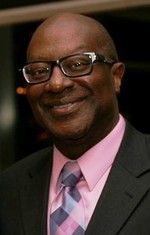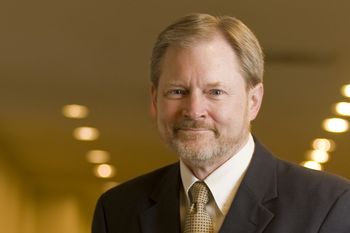The eighth annual Augsburg Scrubs Camp enjoyed another summer of strong student participation and sparked interest in health care careers. Scrubs Camp is a summer youth camp provided by HealthForce Minnesota that works to connect high school students from underserved populations to visions of college and careers in healthcare. The camp introduces career pathways in healthcare by engaging students in hands-on sessions taught by camp sponsors such as University of Minnesota and Fairview Health Services, and introduces participants to health care professionals.
Scrubs Camp provides students with access to college labs, classrooms, and facilities, providing students the opportunity to tour a college campus and explore higher education. Connecting students of color to pathways to higher education and careers in healthcare is important to the Central Corridor Anchor Partnership. In 2016, participants at the Augsburg Scrubs Camp were 38% African-American, 23% Asian/Pacific Islander, 20% Caucasian, 14% Hispanic/Latino, 3% mixed race/ethnicity, and 1% other.
Students Kick off Scrubs Camp at Augsburg College
Augsburg's Scrubs Camp is the second-oldest in Minnesota. This year, approximately 80 students registered for Scrubs Camp at Augsburg. The high school students gathered in Foss Chapel for an opening ceremony. Counselors introduced themselves and students shared the high schools that they attend. Some noted that they were interested in dermatology, others in phlebotomy, and some unsure of what they might want to pursue in health care.
Valerie DeFor, Executive Director of HealthForce, spoke about what to expect during Scrubs Camp. DeFor encouraged students to work on their social interaction skills by meeting new people and making new friends. “In health care, you’ll work with people on the very best day of their life and the worst day of their life - you’ll see both ends of that spectrum,” said DeFor. She noted that the two mottos of Scrubs Camp are to “go with the flow” and “be your best self.”
Throughout the week, students learned about different areas of health care by participating in activity blocks led by local health care professionals. Almost all of these health care professionals were volunteers donating their time. DeFor motivated students to get involved and ask questions. “You’re going to be taught by people working in the field,” noted DeFor. “Take that opportunity. Ask about education, their favorite part of the job, and what a typical day is like.”
A Successful Week
On their final day at camp, students heard from Deon Clark, a nuclear engineer and the current CEO of TCI Solutions, a company dedicated to developing local, diverse talent for companies. Growing up in an underprivileged neighborhood in Chicago, Clark promised his mother he would get a good education. He joined the Navy and was placed in an 18-month program that helped him earn a Bachelor’s degree and gain the qualifications needed to run a nuclear power plant. By age 19, Clark was running a nuclear aircraft carrier. “It can be hard to succeed without the support of the people around you,” Clark said. “Sometimes you have to ask for it, and then tell them exactly how they can support you.”
President Paul Pribbenow of Augsburg College gave the main address of the Closing Ceremony, dressed in full academic regalia. He spoke about his love of Scrubs Camp, and the importance of the program, especially with the growing need for nurses.
“I love seeing all these enthusiastic young people around campus,” President Pribbenow said. “I’m not a young man, and I’m happy knowing that these are the people who will take care of me when I am too old to do it myself.”
President Pribbenow presented each participant with a diploma, congratulating them on their successful completion of the program. Family and friends looked on as each participant celebrated their successful experience and got a taste of what a college graduation would feel like.






